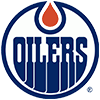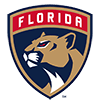For the Week of March 8-15
Crunch time is almost here; most leagues start the playoffs in the next few weeks, and with the trade deadline in the rear window, the only way your team is getting better is through the waiver wire. Fortunately, that's why we're here, and we'll help you out -- but you'll need to do some work.
1. Know the Rules
Does your pool cap the number of weekly or season-long acquisitions? Many do, and it prevents brute-force strategies from paying off. If your league doesn't implement these rules, here's a quick summary of brute-force: make sure you have as many spots in your roster playing every single night as possible by dropping seemingly good players for inferior ones every single night. Alex Ovechkin is leading the NHL in points with 67 in 65 games, but he'll only play three nights a week. If you can pick up a player every night with 35 points in 65 games -- like Antoine Vermette, Mike Fisher, Erik Cole or Carl Soderberg -- you're statistically ahead at the end of the week. Three games of Ovie would result in approximately three points. Seven games of the aforementioned would likely result in four, while paying additional dividends in secondary categories like PIM and shots. If you're in a shallow pool, and can find even better players than Vermette, the calculus becomes even more compelling.
It's might be dirty, but if you want to win, it works really well.
For the Week of March 8-15
Crunch time is almost here; most leagues start the playoffs in the next few weeks, and with the trade deadline in the rear window, the only way your team is getting better is through the waiver wire. Fortunately, that's why we're here, and we'll help you out -- but you'll need to do some work.
1. Know the Rules
Does your pool cap the number of weekly or season-long acquisitions? Many do, and it prevents brute-force strategies from paying off. If your league doesn't implement these rules, here's a quick summary of brute-force: make sure you have as many spots in your roster playing every single night as possible by dropping seemingly good players for inferior ones every single night. Alex Ovechkin is leading the NHL in points with 67 in 65 games, but he'll only play three nights a week. If you can pick up a player every night with 35 points in 65 games -- like Antoine Vermette, Mike Fisher, Erik Cole or Carl Soderberg -- you're statistically ahead at the end of the week. Three games of Ovie would result in approximately three points. Seven games of the aforementioned would likely result in four, while paying additional dividends in secondary categories like PIM and shots. If you're in a shallow pool, and can find even better players than Vermette, the calculus becomes even more compelling.
It's might be dirty, but if you want to win, it works really well. There is, however, a defense to this, which we affectionately call "carpet bombing." Drop the worst player on your team, and add the best player available. Now, drop that player back into waivers and add the next best player. Repeat about a hundred times until the players left in the free agent pool are pretty awful. All the players your opponent would pick up are now sitting in the waiver queue, unable to be added immediately. If you wait until they commit to the brute-force strategy, you can actually pick up a great player AND screw them at the same time. Before you commit to the half-hour of adding and dropping to make this plan a reality, check to make sure your league is set up to make this a viable defense.
2. Know the Schedule
The New York Rangers, Detroit Red Wings, Ottawa Senators and Carolina Hurricanes have played 63 games -- the fewest in the league. Anaheim and Tampa Bay each played 67 games -- the most. If you invest in a Duck or a Lightning, be cognizant that they will each play close to a quarter fewer games from today onward than their Ranger, Wing, Senator or Hurricane equivalent. And not to dump on them too hard, it's also important to know who is playing the Leafs, Oilers, Sabres, Coyotes and Hurricanes down the stretch. These teams really have no reason to try very hard, and teams who end up meeting them toward the end of the season will usually have statistical up-ticks.
3. Know the Standings
It's a dirty little secret that every fantasy GM should know: bubble teams are money down the stretch. Most teams that are already secure in their playoff spot will start backup goalies, give depth players a little more ice time and generally keep their foot off the gas pedal in preparation for a deep run in the playoffs. Bubble teams will go full-tilt until they either make it or are eliminated. That's important -- teams that are sky high in your standings got there on the backs of key thoroughbreds that likely will be rested or give less than 100 percent effort. When possible, look to adjust players lower in your roster to include more Boston, Winnipeg, Florida, Ottawa, Philly, L.A. and San Jose players.
That said, here are some players who are going to be very good from here on:
Brandon Pirri C, FLA - The last few games have been good for investors of this young Panther. He's playing on the surprise third line with Vincent Trocheck and Jimmy Hayes, and in the last five games, he's netted four goals -- two coming on the power play -- and added 19 shots with a plus-two. Since his return from an upper-body injury last month, he's had more time on the power play, and his game log looks impressive. Based on Pirri's performance so far and his reasonable salary, Chicago is probably kicking itself for letting him go for a third-round pick last year.
Mike Hoffman C/W, OTT - Nobody expected Ottawa to take a run at a playoff spot a month ago. At the beginning of February, the Sens were 11 points back of the last wild-card spot and had a decidedly mediocre 4-4-2 record in their last 10. Fast-forward to today, and Ottawa is the hottest team in the NHL, going 8-1-1 in their last 10. Hoffman is a big reason why. With two goals and three assists in his last four games, and 11 points in his last 10 games, he, along with linemates Curtis Lazar and Alex Chiasson, have helped a mediocre team look great. Ottawa is still five points out of a wild-card spot, but it has a game in hand on the incumbent Bruins, and looks incredibly good. Hoffman likely will continue his hot hand in the weeks to come, and as mentioned, the Sens have played the fewest games so far -- invest if you still can.
Mikael Granlund C, MIN - We have been big boosters of Granlund's for a long time, and we're excited by what we're starting to see out of the young Finn. At 22, he's still getting better every year, and he'll likely eclipse his career highs by the end of the season if he can stay healthy. His last five games have been really good -- a goal and four assists with six PIM and a plus-seven. Playing between Zach Parise and Jason Pominville is a great way to find success -- both are seasoned veterans who know how to play excellent defense and produce offensively. Minnesota is in the first wild-card post, but it is trying to simultaneously ward off Winnipeg while catching Chicago, which is only four points ahead. The Wild will play hard right to the last day, and Granlund is going to have plenty of opportunities until then.
Jonathan Huberdeau C/W, FLA - He's been trying to find his game since the end of his exceptional rookie campaign when he won the Calder trophy. After a dismal sophomore season, he looks like he might finally be finding his legs. He has five points in his last three games, in addition to two power-play points, and the play of the rest of the team has taken some of the heat off him. He also seems to be benefiting greatly by the inclusion of Jaromir Jagr on his wing -- a deadline acquisition that may end up being the difference if the Panthers are to catch the Bruins. Time will tell on that, but Huberdeau is largely available in most leagues, and he'll provide a good return for deep teams looking for stretch-run scoring.
Matt Dumba D, MIN - Key injuries to the defensive corps of the Wild have necessitated the reliance on players who might not have been ready otherwise. With Marco Scandella, Jared Spurgeon and Keith Ballard all on the shelf, Matt Dumba has stepped up his game -- and likely his development -- to show coach Mike Yeo that he's ready for the NHL. Yeo has responded by rewarding him with more and more ice time, which Dumba has made the most of. In his last 10 games, he has four goals, a pair of PIM and one power-play goal for good measure. But most surprising is his plus-minus rating of plus-12 in that stretch. It's difficult to accurately predict plus-minus performance, but we'd be remiss if we didn't recommend grabbing him just for that stat, if your league uses it. He'll help in other areas, but he may very well nail down that awkward stat category all by himself.
Justin Abdelkader W, DET - We've always been lukewarm to Abdelkader, but playing on the wing with Henrik Zetterberg pays dividends (if you don't believe us, just ask Erik Cole). In his last three games, Abdelkader has three goals and an assist to go with a plus-one, two PIM and a power-play goal. He's also added 10 SOG in that stretch -- not too shabby for someone with mid-20s ownership levels. As we said, Detroit has a lot of games remaining, and it's trying to catch Tampa Bay for home ice advantage. The Red Wings are only five points back with four games in hand, so it's highly possible that coach Mike Babcock will have his boys hopping until they've secured one of the top two spots in the Atlantic. Abdelkader will continue to get key opportunities, and with his presence on the top power-play unit, he should increase his performance for the next month.





































